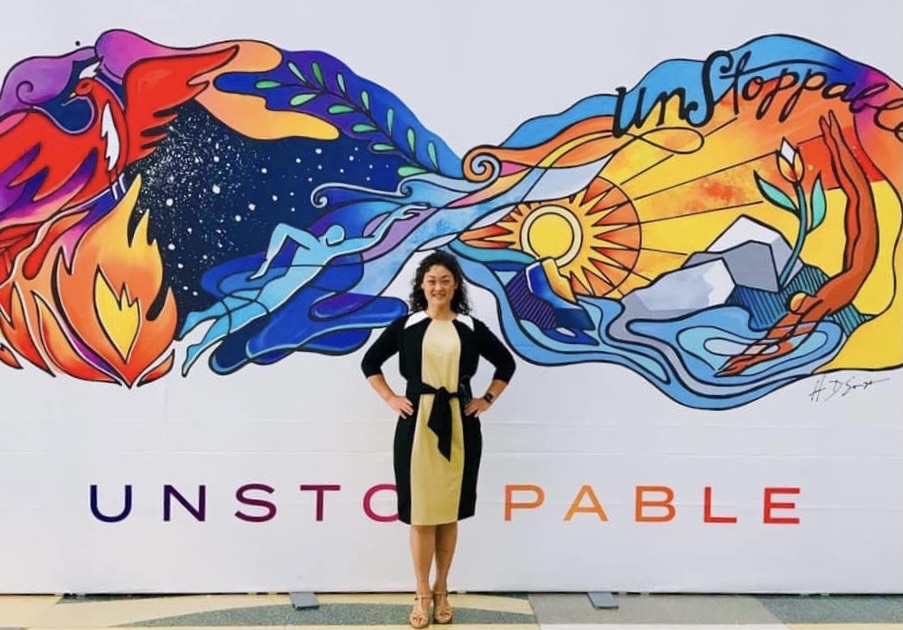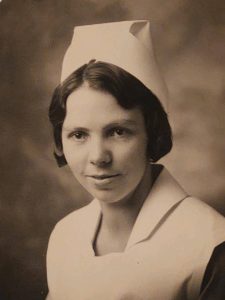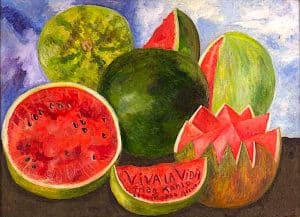I never planned on becoming a nurse. In fact, when my father proposed nursing as a career, I flatly rejected it. *I* couldn’t go to the local community college to study nursing. Not when my friends (at a math/science magnet high school program) were all posting every university acceptance in the magnet office.
Although, to be fair, I had no idea what nurses did. I had never met a nurse. My persistent image of nurses up to 1990’s was a double-edged sword. Either they were attractive young women in tight white dresses, kowtowing to white male doctors; or they were stern and unattractive older nuns. All wore nursing caps. At that time, I could never have imagined the collaborative environment in which I now work.
However, the image of nurses started to evolve in the 90’s. The tv show ER was the first that highlighted nurses as complex characters that interacted in human ways with their patients and physician colleagues. Although the role of nurses was still subordinate to an overarching focus on physicians, these nurses weren’t simply “Yes doctor” droids. The nurses were boldly treating patients, and voicing their expertise, even when they conflicted with the physicians (both female and male).
However, I probably never would have become a nurse, if I hadn’t gotten really sick and had to be admitted to the hospital. I had been a healthy child and young adult. I’d never had a broken bone, surgery, or spent the night in a hospital. However, in college I was diagnosed with insulin-dependent (Type I) diabetes, and had to be admitted to the ICU. I didn’t know anything about diabetes, and was heartbroken. As I drove myself to the hospital, I stopped by McDonald’s for a fillet o’fish combo with a chocolate shake. I thought my life was over.
I was in the ICU for several days, as the nurses worked to normalize my blood sugars, acidosis, electrolyte levels, and hydration status; while watching for cerebral edema (dangerous side effect when hyperglycemia is corrected too rapidly). They were incredibly kind, supportive, caring, and knowledgeable. They taught me in manageable morsels about what living with diabetes meant, and how I would be able to manage it.
Learning to live with Type I diabetes has changed my life, not least of all deciding on a career. As a person with a preexisting condition, it would be prohibitively expensive to purchase health insurance: I needed to be readily employable throughout my lifetime. Already a biology major, healthcare seemed the best route, as it combined my affinity for science, and my desire to work compassionately with and for people. Since I was close to finishing, I completed my bio degree, and moved home to attend … yes … the local community college.
In retrospect, I was very lucky. I got into the nursing program at the local community college on the first try, even with the lottery system. My parents had a large enough home and the financial resources to welcome me back. Although my health insurance (through my parents) expired when I graduated university (another reason to keep the ACA), I had access through the cumbersome county program. I dealt with a few major complications of diabetes during this time, but without lasting ill effects, since I was still very young.
As a new graduate nurse, I had unreasonable expectations of what my first job would look like. After several months of disappointments, I adjusted my views, and got my first job as a pediatric intensive care (PICU) nurse at a community hospital, on the night shift. It was strange to be working when the rest of the world was sleeping, but it afforded me the luxury of starting my career by focusing on the work, and not on the red-tape of hospital bureaucracy. A few years later, I made the jump to a top-rated, dedicated children’s hospital, where I’ve been for the past two decades.
Although I entered the nursing field with an associate’s degree (albeit with a bachelor’s in a related field), I did return to school part-time to earn my bachelors of science in nursing, as well as a masters of science in nursing administration, with the extra coursework to sit for the nurse educator exam. I was lucky that my work paid for the majority of my tuition. Currently the field is very competitive. When the economy is down, nurses who have stopped working, or cut down their hours to be home with children, return or increase their hours, or simply delay retiring. These days, it is difficult to get a new grad job with just an associate’s degree, and many new grads at my facility already have an MSN from a combo program.
Although a woman-dominated field, nursing has been extremely good for me. I was lucky to find my niche, although I’m always trying to find ways to grow and learn. Throughout my career, I have worked in hospitals, which offer shifts 24/7, and consistent health insurance benefits. When I made the jump to my current hospital, there was an extreme nursing shortage, and hospitals were offering large hiring bonuses. We still have a nursing shortage, partly due to the high expense of running nursing schools, but the sign-on bonuses are not nearly as large. However, nurses these days have many more options than working at the bedside, including nurse practitioner, nurse anesthetist, clinical nurse specialist, management (midlevel and executive), nurse researchers, nursing informatics, etc. Additionally, there are many roles outside the traditional hospital, including public health nursing, school nursing, outpatient procedures, etc. There are almost as many niches as there are types of people!
Finally, having a spiritual background has helped keep me grounded in my work. There are so many unfair things about this world. Believing in the immortality of the soul, a life beyond this one, and a higher power that loves us all, gives me a relief valve for the things that just can’t be explained.
Some things I love about my job:
- I get to support children and their families at some of the best times (definitive fix surgeries like kidney transplants, finding the right diagnosis and treatment after previous disappointments) and worst times (traumatic injury, septic cancer patients, child abuse, acute respiratory distress syndrome) of their lives. I get to use my brains and my heart, with measured doses of ICU adrenaline.
- I do this work with a team of amazing professionals including my fellow nurses, physicians (intensivists and specialty consult services), respiratory therapists, pharmacists, nursing aides, social workers, chaplains, child life specialists, physical/occupational/speech therapists, interpreters, educators, managers, house supervisors, housekeepers, etc. And since I am at an academic facility, we have learners at all levels, to keep even the most experienced people on their toes. My hospital is a Magnet (ANCC) designee, and my unit has maintained a Beacon Gold designation (AACN) for as long as I can remember.
- I have good job stability, and can maintain consistent health insurance. I have the credentials and work experience to get a good position literally anywhere in the US. I do think that I would have gone on to become a nurse anesthetist, if it hadn’t required quitting my job to attend school full-time. I do ponder what great things my country could accomplish, if the citizens had the safety net of quality healthcare to support them in seeking to attain their loftiest dreams.
- My job fulfills me, but doesn’t consume me. I have lots of time to spend with family and friends, travel, and work on my personal life. I have been able to cut my work week down to 30 hours a week, which is perfect at this stage of my life. Other options include 36, 48, or 12 hours a week in my area of the hospital.
Things that have required consideration:
- As a bedside nurse, I have to work some weekends and holidays. I worked the night shift for the first 8 years of my career. It was tough. I compensated by going swing dancing on my off-nights, and kept a mostly afternoon/evening/night schedule. I then switched to working during the day. The work is complicated by bureaucracy and procedures (surgeries, studies, therapies only done during the day), and I get paid less (no night-shift differential), but my body is happier.
- PICU nursing is physically and emotionally challenging, as wonderfully delineated by my friend and coworker. Due to privacy laws, I debrief mostly with my coworkers. Many people outside the field don’t necessarily understand what I do. I’m trying to keep fit (in all dimensions) so that I can continue to work, but am also thinking about the time when I will be too physically tired to do this work, and looking for options that will allow me to continue working until I’m ready to stop.
- Especially in the winter, many of my patients have respiratory illnesses. Since I have Type I diabetes (an autoimmune disease), I am at higher risk. Although I am grateful that my hospital has been great about providing PPE and solid strategic planning, I am careful about how I change out of my scrubs at home, and where my work shoes are kept.
- I feel lucky to work at a hospital that I am proud of, and that my unit’s management works hard to support the nurses. This is not always the case. My hospital is also where the Versant competency program was developed, so on-boarding of new staff is methodical, evidence-based, and not rushed. I worry about nurses at facilities that do not give a thorough orientation, or where staffing gets dangerously out of balance during the respiratory season (during the winter, or basically all of 2020).

I definitely took the scenic road during my nursing career, and I’m not done yet. In the past three years, I’ve presented at posters at institutional, local, and national nursing conferences, and have been the primary facilitator for a presentation at a national nursing conference. I wish I had started earlier, but I’ve started now, and plan to do much more.
During this pandemic, I’d encourage everyone to take a minute to be mindful. It’s ok to take the scenic route. One of the benefits of being involved in organizations apart from work (like church, community groups, hobby enthusiasts, etc) is that you get exposed to people from a variety of fields. Talk to them. Ask questions. Explore your options. Once you find your niche, prepare and pursue it with passion. You will be Unstoppable.






4 Responses
Thank you for sharing, Dora, and for everything you do! You’re an incredible person.
This makes me feel so happy, Dora! I have always admired you and your career. I love learning your backstory.
Dora, this is such a wonderful account of your journey with nursing. I love that you found this terrific profession. I love that you bring your huge wonderful heart to this job. Honestly, thinking about how perfect this job is for you makes me a little teary. I wish I had looked into nursing earlier in my life!
Dora, this is brilliant!! Thank you so much for shining your light here again– I’ve missed you and your magical words and LOVED reading your amazing part in nursing. You truly make the world a better place. Thank you!!